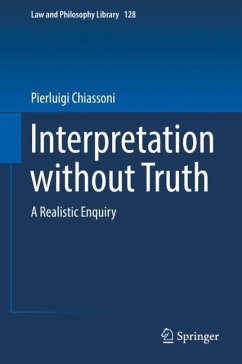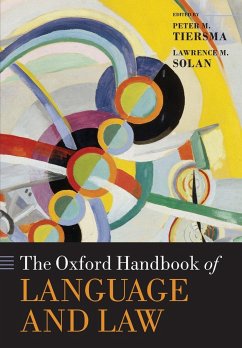
Law Without Justice
Why Criminal Law Doesn't Give People What They Deserve
Versandkostenfrei!
Versandfertig in 1-2 Wochen
83,99 €
inkl. MwSt.
Weitere Ausgaben:

PAYBACK Punkte
42 °P sammeln!
If an innocent person is sent to prison or if a killer walks free, we are outraged. The legal system assures us, and we expect and demand, that it will seek to "do justice" in criminal cases. So why, for some cases, does the criminal law deliberately and routinely sacrifice justice? In this unflinching look at American criminal law, Paul Robinson and Michael Cahill demonstrate that cases with unjust outcomes are not always irregular or unpredictable. Rather, thecriminal law sometimes chooses not to give defendants what they deserve: that is, unsatisfying results occur even when the system work...
If an innocent person is sent to prison or if a killer walks free, we are outraged. The legal system assures us, and we expect and demand, that it will seek to "do justice" in criminal cases. So why, for some cases, does the criminal law deliberately and routinely sacrifice justice? In this unflinching look at American criminal law, Paul Robinson and Michael Cahill demonstrate that cases with unjust outcomes are not always irregular or unpredictable. Rather, the
criminal law sometimes chooses not to give defendants what they deserve: that is, unsatisfying results occur even when the system works as it is designed to work. The authors find that while some justice-sacrificing doctrines serve their intended purpose, many others do not, or could be replaced by
other, better rules that would serve the purpose without abandoning a just result. With a panoramic view of the overlapping and often competing goals that our legal institutions must balance on a daily basis, Law without Justice challenges us to restore justice to the criminal justice system.
criminal law sometimes chooses not to give defendants what they deserve: that is, unsatisfying results occur even when the system works as it is designed to work. The authors find that while some justice-sacrificing doctrines serve their intended purpose, many others do not, or could be replaced by
other, better rules that would serve the purpose without abandoning a just result. With a panoramic view of the overlapping and often competing goals that our legal institutions must balance on a daily basis, Law without Justice challenges us to restore justice to the criminal justice system.













